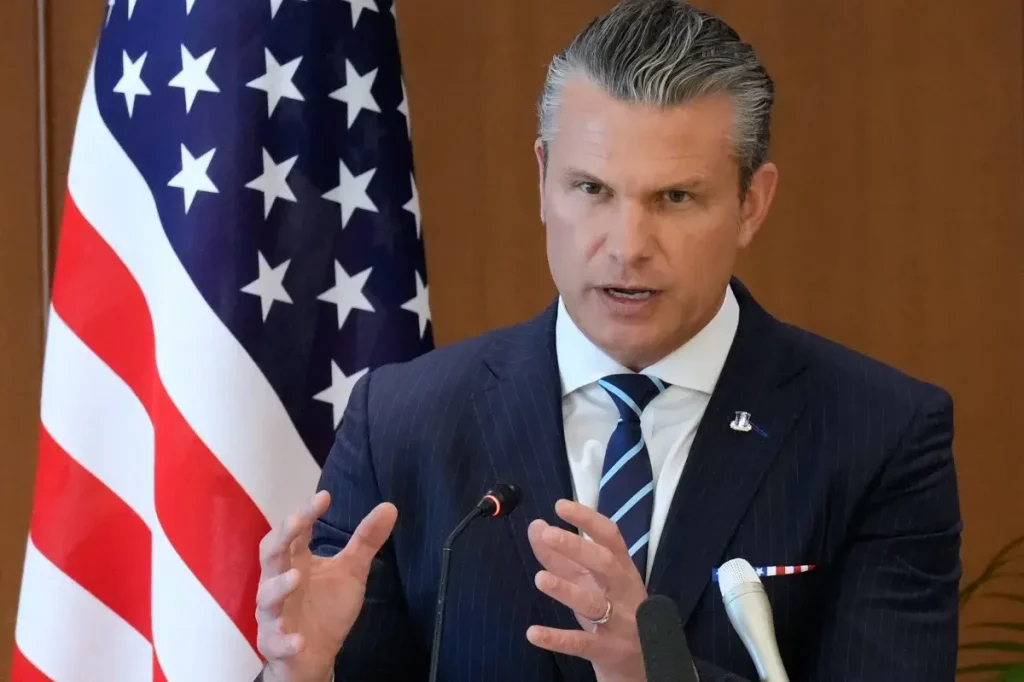U.S. Military Strikes in Pacific and Caribbean Raise International Concerns
In a series of aggressive military actions aimed at combating narcotics trafficking, U.S. forces have conducted multiple strikes on vessels in the Pacific and Caribbean, resulting in dozens of fatalities. The most recent operation, announced Wednesday by Defense Secretary Pete Hegseth, claimed four lives on a boat in the eastern Pacific Ocean. According to Hegseth’s statement on social media, “This vessel, like all the others, was known by our intelligence to be involved in illicit narcotics smuggling, was transiting along a known narco-trafficking route, and carrying narcotics.” This latest strike brings the total to nine military attacks on boats in just the past month, with the combined death toll now reaching at least 38 people, demonstrating the Trump administration’s intensified approach to combating what they describe as operations by Designated Terrorist Organizations (DTOs).
The Department of Defense has established a dedicated counternarcotics task force to execute these operations, specifically targeting ships suspected of transporting drugs and DTO members. The strategic goal appears focused on disrupting the flow of narcotics into the United States through military intervention rather than traditional law enforcement approaches. President Donald Trump has personally highlighted these operations on social media, emphasizing his administration’s commitment to stopping drugs from entering American soil. Defense Secretary Hegseth has adopted particularly forceful rhetoric regarding these actions, declaring that “The Western Hemisphere is no longer a safe haven for narco-terrorists bringing drugs to our shores to poison Americans. The Department of War will continue to hunt them down and eliminate them wherever they operate.” This language reflects a significant shift in how the administration characterizes and approaches the longstanding issue of drug trafficking.
These military strikes have sparked substantial international criticism, particularly from leaders in Latin America. Venezuelan President Nicolás Maduro has accused the Trump administration of “inventing a new eternal war,” suggesting that these operations represent a concerning expansion of U.S. military activity in the region under the pretext of drug enforcement. Similarly, Colombian President Gustavo Petro has been outspoken in his condemnation, particularly regarding strikes that have killed Colombian nationals. Petro has characterized these operations as “murder,” contending that some of the people killed were innocent fishermen rather than drug traffickers. These accusations raise serious questions about the intelligence guiding these operations and the potential for civilian casualties in what appears to be an increasingly militarized approach to drug interdiction.
The pattern of these strikes reveals a concerning lack of transparency regarding the identification and verification of targets. While the Defense Department claims these vessels are involved in narcotics trafficking, limited information has been provided about the specific evidence used to make these determinations before launching lethal strikes. In Wednesday’s operation, as with several previous incidents, the nationalities of those killed were not immediately disclosed, although earlier strikes have primarily targeted Venezuelan and Colombian nationals. This lack of transparency compounds concerns about the potential for misidentification and civilian casualties. The absence of due process in these operations—where suspected narcotics traffickers are killed rather than apprehended and tried—raises significant legal and ethical questions about the administration’s approach.
The broader implications of these military actions extend beyond immediate counternarcotics objectives. Critics argue that the administration may be overreaching its military authority and potentially escalating regional tensions under the banner of drug enforcement. The characterization of drug traffickers as “terrorists” and the employment of military force rather than law enforcement approaches represents a significant shift in U.S. policy. Venezuelan President Maduro’s warning that “The people of the United States know it, they are inventing a new eternal war. They promised they would never get involved in another war, and now they are inventing a war that we are going to prevent” highlights fears that these operations could lead to broader regional conflict. These concerns are particularly salient given the already complex diplomatic relationships between the United States and several Latin American nations.
As these operations continue, tensions between the United States and countries like Venezuela and Colombia are likely to intensify. The identities of those killed in Wednesday’s strike remain undisclosed, potentially adding to the diplomatic complications if they are identified as nationals of countries already critical of these operations. Questions remain about the legal framework supporting these strikes, the process for identifying targets, and the measures in place to prevent civilian casualties. The administration’s aggressive approach also raises questions about long-term strategy—whether military strikes alone can effectively address the complex issue of drug trafficking, which is driven by persistent demand within the United States and deep-rooted economic and social factors in source countries. As the death toll rises and international criticism mounts, the Trump administration’s narcotics interdiction strategy may face increasing scrutiny both domestically and abroad.


